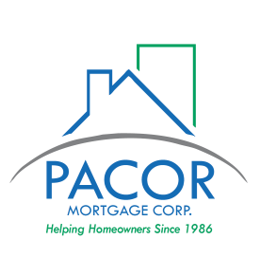When you’re shopping for a home loan, you’ll come across various mortgage options related to the down payment, loan term, and interest rate. Let’s focus on the interest rate and how your choice will affect your overall mortgage payment. There are two main options – fixed-rate and adjustable-rate. What’s the difference and how do you know which one is better for you?
The difference between a fixed-rate and an adjustable-rate mortgage is just that – a rate that doesn’t change versus a rate that fluctuates. Fixed-rate mortgages have a locked-in interest rate that won’t change throughout the life of your loan, no matter if rates go up or down. With an adjustable-rate mortgage (ARM), the rate may fluctuate, up or down, depending on the current housing market.
Within these two categories there are several mortgage loan options, and having a solid understanding of fixed versus adjustable rate is crucial when you begin shopping for your home loan.
Fixed-Rate Mortgages
A fixed-rate mortgage originates with a locked-in interest rate that remains the same throughout the life of your loan. While the amount of interest paid varies monthly, your total monthly payment stays the same, making it easier to create and maintain a budget.
However, a consistent monthly payment isn’t the only benefit of a fixed-rate mortgage. As a borrower, you (and your payments) are protected from increases in interest rates – a positive associated with fixed rates. However, a negative to fixed-mortgages is that when interest rates are high it may be more difficult to qualify for a loan as the payments will be less affordable.
Typically, fixed-rate mortgages are offered for different loan terms, with 15- and 30-year terms being the most common.
Adjustable-Rate Mortgages
Unlike fixed-rate mortgages, adjustable-rate mortgage (ARM) interest rates are a little more fluid. ARMs usually start at a lower interest rate than fixed-rate mortgages; this initial rate can remain the same for months, a year, or many years. When the introductory period is over, however, your interest rate will inevitably change and your monthly payment will likely increase.
Before you choose an adjustable-rate mortgage, ask yourself and your mortgage lender these questions:
- How high can your interest rate and monthly payments increase with each rate adjustment?
- How soon or at what point would your payments increase?
- How frequently will your interest rate adjust?
- Is there a limit on how high your interest rate could go?
While lower payments are nice at the loan’s origination, if you’re on a tight budget and can’t afford the higher payments of an ARM, you may want to consider a fixed-rate mortgage.
Trust Pacor Mortgage
Whether you ultimately choose a fixed- or adjustable-rate mortgage, you can trust the experienced professionals at Pacor Mortgage. We can answer your questions, determine which type of loan is best for you, and help you take advantage of today’s great mortgage rates. Give us a call today at 773-881-7744 to set up an appointment, or visit our website to learn more about our products and programs.

